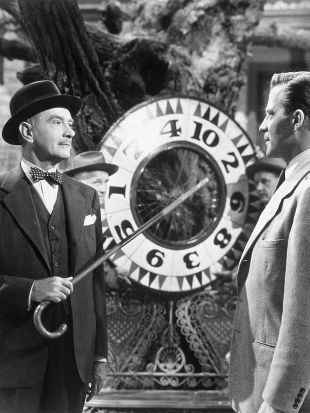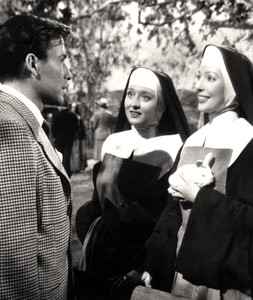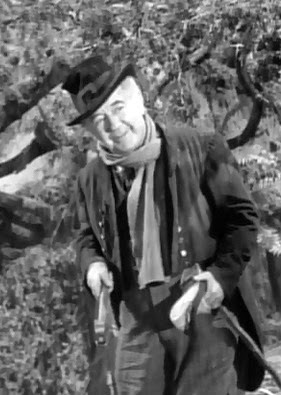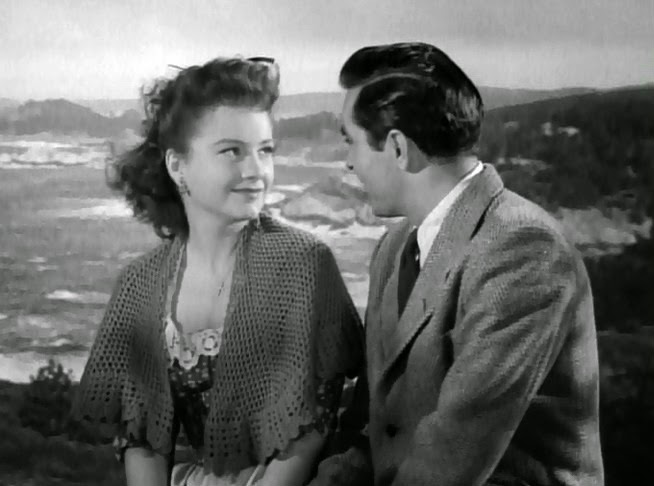In 1948, 20th Century Fox released Sitting Pretty, a comedy featuring a character named Lynn Belvedere who was unlike any other that ever appeared in books, radio, or film. Belvedere was an author and lecturer and a very well-educated snob. He didn't just know a little bit about everything, he was an authority in every field. Mr. Belvedere was a bonafide genius and knew it. He was terribly vain and would make sure that everyone else knew he was a genius as well.
"I have a very ordinary face. It's only my eyes that reveal my amazing intelligence."
Belvedere had a keen wit, a superior air, and a biting tongue that could quickly put others in their proper place: beneath him.
The one quality that Mr. Belvedere had and did not often boast about was his benevolence. Under his crusty exterior, he was a do-gooder at heart and delighted in helping those whom he deemed worthy of his aid.
In Sitting Pretty, Clifton Webb portrayed Mr. Belvedere, and he was able to convey both of these sides of his nature brilliantly. Very few actors could have tackled this part, yet Webb did so easily and made Belvedere an all-around lovable character.
Sitting Pretty had Mr. Belvedere take on the job of a nanny and attempt to prove that he could raise three rambunctious children better than their parents. The film was such a hit at the box office, that Fox followed it up with two more Mr. Belvedere pictures.
Mr. Belvedere Rings the Bell, released in 1951, was the third in the series and the best of the three. It was also unique for featuring a plot set in the unlikeliest of places - a nursing home.While on a lecture tour, Belvedere overhears some elderly people in a park complaining about life and their various ailments. The idea of getting old before his time intrigues him and he wonders whether there is "any point in living to be 80."
Being the man of action that he is, he abandons his tour - much to the chagrin of his publicity agent (Zero Mostel) - and decides to enter himself into the Church of John Home for the Aged to see what life in a nursing home is like. Entrance is not as easy as it seems for they do not accept people under 70. But fortune favors the bold and Mr. Belvedere is mistaken to be a Mr. Erwenter, a 77-year-old man who had already enrolled...so he simply assumes his identity.
The inhabitants of the old age home welcome him with excitement because "Mr. Erwenter" isn't a bit like themselves. He has a zest for living and, strangely enough, doesn't look like he is 77 years old at all!
"We're very happy to have you with us, Mr. Erwenter. It will make a nice change." - Nurse Harriet
"You've no idea how much of a change it will make!" - Mr. Belvedere
Belvedere's original intention in coming to the Church of John may have been to preview his future but once he arrives and sees the downhearted spirits of his fellow lodgers, he makes up his mind to become an instigator of change, an intentional gust of wind to stir their minds and blow new life into their dull and uneventful lives.
Each of the inhabitants is touched in a profound way by this one man. Mr. Beebe (Billy Lynn) is especially affected by Belvedere's arrival. Mr. Beebe has no interest in life. He is waiting for spring, even while knowing that the spring to come will only resemble the winter that was.Mr. Cherry (Harry Hines) is downhearted, too. He eats the food that is set before him but wishes the church had the funds to buy him a new set of teeth. Ms. Hoadley drinks ("Nobody has a right to be that happy, " a fellow lodger comments); Ms. Sampler only talks of "love, love, love" and the three marriages she had; and saddest of all is Mrs. Hammer (Doro Merande) who hides her loneliness behind snarky - although amusing - remarks.
"Eat and sleep, sleep and eat. The only action we get around here is in our stomachs."
Nurse Harriet (Joanne Dru) always has a cheerful smile and tries her best to tend to their needs and liven their spirits. "Someday we'll have a wonderful garden with green grass and pretty flowers," she says. "Flowers won't grow here. The whole place is old, even the ground. You ought to be ashamed to run an old dump," Mrs. Hammer replies.
Harriet is in love with Reverand Watson (Hugh Marlowe) but he seems oblivious to her. The reverend wants the best for the elderly left in his charge but he has become so preoccupied with bills and the needs of the church that he has neglected their spiritual needs.
"Bills, bills, bills! Religion has become so expensive, only the wicked can afford it."
They all need a shot of vitality and this is what Mr. Erwenter aka Mr. Belvedere provides in the form of a secret youth potion. He tells them of the days he spent with the great Lo Chin Po, a 112-year-old Tibetan, and how together they discovered a formula for restoring youth. "I will write to Lo Chin Po and ask him to send me some more pills for you," Mr. Erwenter announces. The excitement of the thought of being young again makes everyone come alive.
With a plot such as this you would imagine that Mr. Belvedere Rings the Bell is a depressing film to watch. After all, it is set in a rundown nursing home filled with characters who are waiting to die. But it is quite the contrary - it is a gem of a comedy. The script, by Ranald MacDougall, is marvelously witty and benefits from having talented character actors deliver the lines with such humor.
Doro Merande is especially wonderful in the role of bitter Mrs. Hammer. Most of the actors were much younger than the characters they were playing but they tottered around looking convincingly old. Billy Lynn, as Mr. Beebe, gives a touching performance of a heartbroken old man. Like a child who just discovered that Santa Claus is only a fable, Mr. Beebe is hurt more so than the others by Mr. Belvedere's "betrayal" because he had the most faith in him.
"Being young is the way you think! Live every moment as if it is going to be the last one you will ever have. Believe you're young and you will be young. That's my secret."
Hugh Marlowe is wonderful as always as the kindly minister whose life and outlook of life is changed by Belvedere's arrival, and Joanne Dru, as Harriet, is a lovely ray of sunshine in their bleak world. Also in the cast are Warren Stevens, Jane Marbury, and Hugh Beaumont as a policeman.
The story was based on the play "The Silver Whistle" by Robert E. McEnroe, which featured a cheerful hobo named Wilfred Tasbinder who takes on the persona of Mr. Erwenter and helps the lives of those in a nursing home. Ranald MacDougall took the character of Belvedere from Gwen Davenport's 1947 novel and blended him into McEnroe's story, sprinkling the script with wry humor.
20th Century Fox released a number of fine light-hearted comedies like this in the late 1940s and early 1950s. They all were given a healthy budget and a great production staff. Henry Koster (The Luck of the Irish, Harvey) was put in charge of directing Mr. Belvedere Rings the Bell and he had a marvelous flair for making films that were both sentimental and humorous...and shared a message. This picture was ideal for his talents and featured a story about a beneficial intruder not unlike the leading characters found in The Bishop's Wife and Come to the Stable, both of which he directed.
Mr. Belvedere Rings the Bell has a beautiful message about enjoying life and making every moment count. At one point in the film, Belvedere asks Harriet, "It's close to 10 o'clock now. 9 o'clock is gone and we can never bring it back and live it over. What have you done with the thousands of moments in the past two years?" This question is directed at Harriet the nurse and yet it is asked of the audience as well. Mr. Belvedere, in his vast 45 years of age, has lived a full life. In the one brief week he spends at the Church of John Home of the Aged, he stepped into the lives of the people there unexpectedly and touched each one with his presence. With the thousands of moments we all have, it makes you wonder if you cannot do the same and see how rich life can be.
This post is our contribution to The Intruder Blogathon being hosted by yours truly, Silver Scenes, from June 16-18, 2023. Click here to read more reviews of films featuring characters that "intrude" in the lives of others and touch them for the better.















